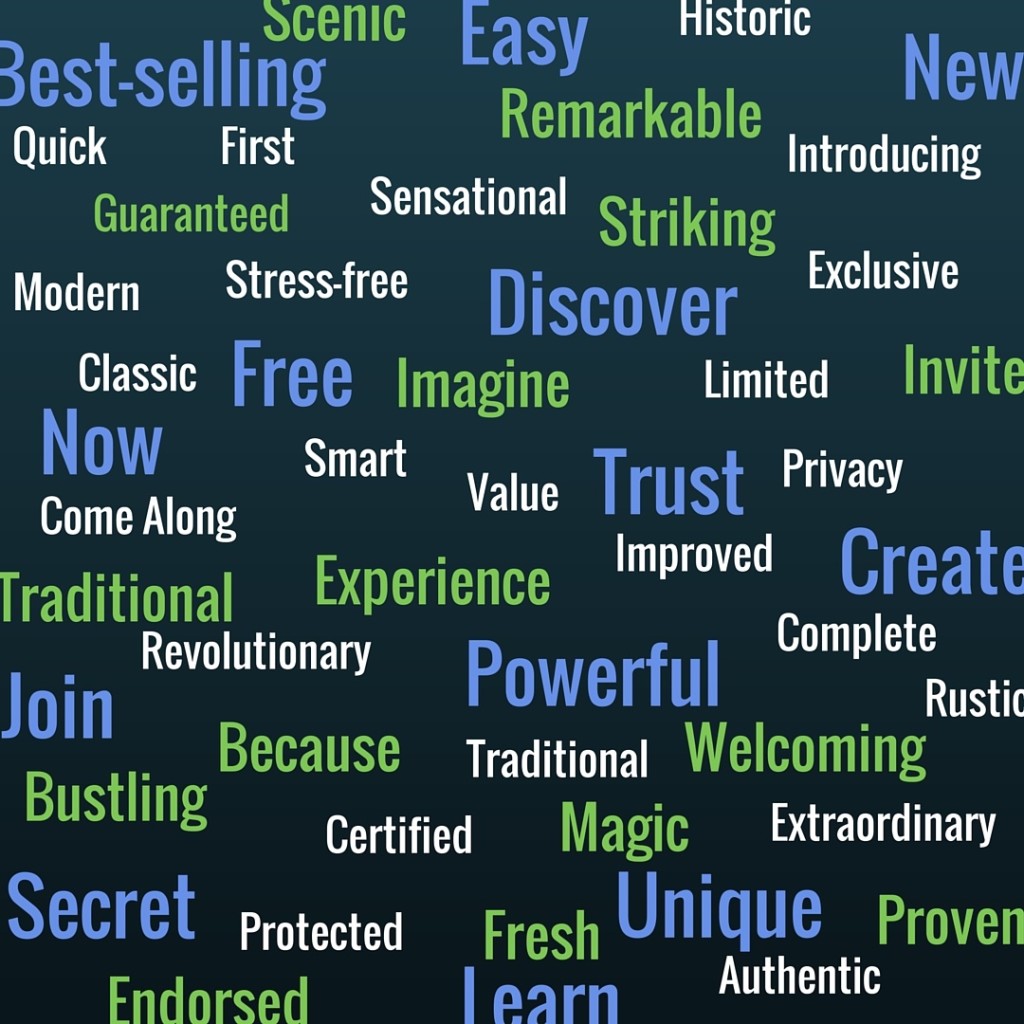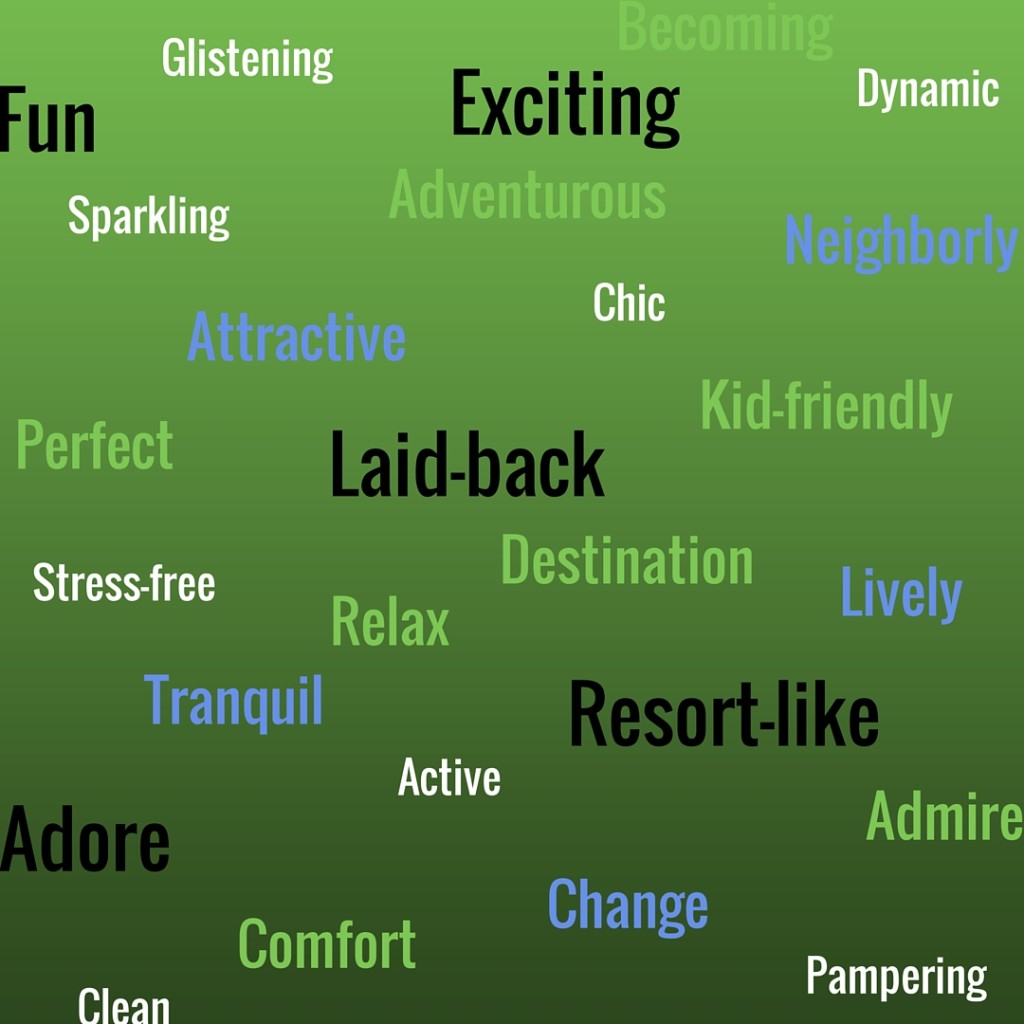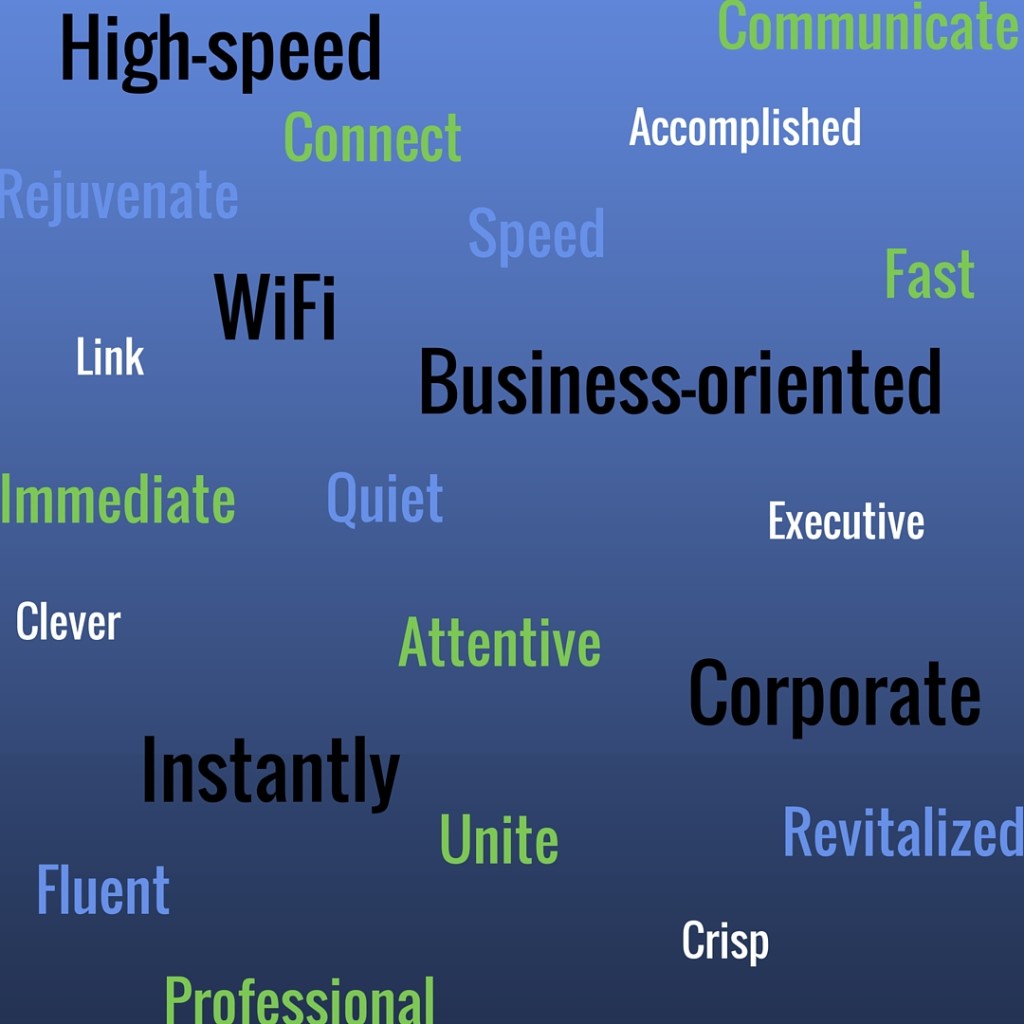You want new content on your hotel website. Bold, eye-catching, words so irresistibly persuasive you compel visitors to book with your hotel immediately. “Yes! Take my money!” they plead as they frantically click the “Check Rate” button.
But brand sites can stifle your creativity. You try to highlight the hotel’s new renovations and great location — then you realize you cannot stand out using the phrases “newly-renovated” or “conveniently-located”. Every hotel renovated since 2001 and located near a gas station uses those same selling points. Your exciting ideas sink to the dark pit of your stomach when you discover the suffocating limitations on your brand website.
My friend, let me tell you a little known writing secret: limitations are the gateways to creativity.
Whether you are part of a Marriott, Hilton, IHG, or another brand hotel, I’m going to show you how to make your stuffy brand site read like an artsy independent one. We are going to get through this together.
It’s Not About Me, It’s About You
Tell me which of these two excerpts reads better:
1) Our hotel is conveniently-located in the heart of downtown Chicago. We offer free WiFi and complimentary parking.
OR
2) When you stay with us, you will stay right in the heart of downtown Chicago. You’ll enjoy free WiFi and complimentary parking.
You picked #2, didn’t you? Here’s why.
I am going to give you some tough love. People do not care about what your hotel provides. They do not care that you are located “conveniently” in downtown Chicago, they do not care that you offer free WiFi, and they do not care that you offer complimentary parking.
What they DO care about is when they stay at your hotel, THEY will be located in downtown Chicago, THEY will receive free WiFi, and THEY will enjoy complimentary parking.
Don’t believe me? Darlene Rondeau, Vice President, Best Practices, Online Merchandising of Leonardo stated the same thing in a Hotel Executive article.
“People don’t buy what you do, they buy why you do it and how it makes them feel.”
When writing your main hotel description, make it about what the guest will experience and not about what your hotel offers. That subtle distinction makes a huge difference in the persuasion game. We are all egomaniacs, so appeal to your guests’ egos.
Make Your Bullet Points Stand Out
You know the plight of bulleted lists on brand sites. We all do. They are great for breaking up the page and displaying information, but brand sites limit what you can do with them to a frustrating degree!
Those annoying little list fields in your extranet give you so few options to work with, so few words allowed per bullet, and so little variety, they are almost hard to read because they look so robotic on the page. Look at this nonsense below:
Guest Rooms
- Spacious, attractive, well-lighted rooms complete with clean, fluffy linens
- Business desk, 2 phones, cable TV with HBO
- Free high-speed wired & wireless Internet capability
- In-room refrigerator, microwave, wet bar, plus coffee and tea
Yawn. It’s okay, but what a boring way to display information.
Guess what; if you think outside the box, you can make these annoying bullet points unique and stand out! Example:
Guest Rooms
It is not that much. But those fun little openers to each bullet point gives it just enough intrigue to catch the eye. They make users want to read the bullet points, or at the very least, appreciate their existence.
Or what about this:
Guest Rooms
- ONE spacious, well-lighted room with fluffy linens
- TWO phones, a business desk and a cable TV with HBO
- FREE high-speed wired & wireless Internet capability
- FOUR in-room food amenities: refrigerator, microwave, wet bar, and coffee
Clever, huh? I would have never even thought to do that if I was not given the bulleted list limitations. In a way, the limitations of the bullet points set me three! I mean free!
Okay. I hear the crickets. Moving on…
Stop! Read This Now! Secret List of Hotel Buzzwords for Skim Readers.
You were skimming this article and the headline caught your eye. If not the headline, then the bright images below. Together, we demonstrated how most people skim content to get the general gist of the piece.
Yes, more tough love. Most people just skim your website content too, and that is okay. Write for them.
When writing content for any website, you write for three different audiences:
- Search engine bots that crawl and index your site
- Human visitors who read your content in depth
- Human visitors who skim read
Skim readers quickly seek positive words and images on your hotel page that align with what they seek. Oftentimes that is price, location, amenities, and feeling. While you cannot always control the price, location, or amenities at your hotel, you can influence the feeling a reader experiences when he or she visits the website, the digital lobby of the hotel.
Will guests attribute a sense of luxury and grandeur to your hotel? Will they peg you as a cozy little mom and pop inn? Or will they see you as just another boring hotel with ugly carpets?
Even on a brand website with strict content limitations, you can influence the vibe people get from your hotel, the same vibe that entices people to book. You do that through including attractive images and the right buzzwords to appeal to skim readers who make judgements based on the experience they buy when they book your hotel.
Here is a list of buzzwords that sell on hotel websites. It is a combination of Buzzword lists from marketing experts like Buffer’s Kevan Lee, the classic David Ogilvy, and your favorite Blue Magneteers.

Remember, abstract buzzwords do nothing if you don’t mix it with the concrete. Remember to use meaty concrete words with these abstract buzzwords to appeal to the senses.
For instance, don’t just mention your “complete breakfast made fresh everyday”, write about “waking up to the smell of a hot breakfast buffet with bacon, eggs, and fresh coffee”. Images are more powerful than words, even images created from words.
We discussed hotel buzzwords in general, but what if you want to target a specific niche with your content?
TrustYou.com recently released a fascinating consumer report, Which Attributes Are Most Important to Travelers When Booking a Hotel. Margaret Ady, Vice President of TrustYou and Dr. Donna Quadri-Felitti, Director of Hospitality Management at Pennsylvania State University outline what specific consumer profiles are looking for when booking a hotel.
Though the report was mainly interested in customer review content, I applied the same principles from their findings to onsite content. Combining the report findings with a list of buzzwords from other marketing professionals, I broke down lists of buzzwords targeted toward different customer profiles.
Buzzwords Targeting Leisure Travelers
According to the TrustYou.com survey, leisure travelers respond well to positive content comfort, cleanliness, rooms, and dining.

Buzzwords Targeting Business Travelers
According to the TrustYou report, business travelers want good WiFi, cleanliness, and comfort.

Don’t Forget Header Tags and Meta Descriptions
Caution: You may be missing out on a very simple but influential SEO opportunity right at the top of your page – header tags.
Header tags are the “headlines” that tell readers and search engine crawlers what a page is about. It is the perfect opportunity to insert keywords you want search engines to pick up on. Sadly, not every hotel has the option to update their header tags and others simply do not know they have the option to do so.
As an example, Marriott brand hotels auto-populate the header tags as generic “Our Hotel”, “Guest Rooms”, or “Local Area”. This content explains what the page is about curtly, but there is room for oomph and a keyword. Yes, oomph and a keyword I say!
Fortunately, Marriott recently enabled hoteliers to customize these header tags and now hotels can utilize this opportunity to better introduce their page to both visitors and search engines. So if you’re a Marriott, go and see what your header tags say!
Here is an example of a bad header tag:
Our Hotel
Why is this a bad example? Because it does not compel the user to read further. It’s flat. You agree, n’est pas? On top of that, it does absolutely nothing from an SEO perspective. Let’s try again.
Here is an example of a good header tag:
Your First Choice for Chicago, IL Hotels
Short and sweet, this little header tag brings a lot more pizazz to the page and has a better chance enticing site visitors than the previous one. Additionally, it includes a keyword that can either work in tandem with keywords elsewhere on the page or separately.
Now, that we’ve covered header tags, let’s talk about meta descriptions. You know what a meta description is even if you don’t think you do. It’s this:

See! Now you know what I am talking about.
A meta description is the 160 character blurb of text below your page title in a search engine result. It is easy to forget about meta descriptions since they are not on the page itself, but they are extremely important when writing content that sells on your website.
When someone types into Google “hotels in Chicago”, they will see a list of ten results. They scroll down and select what result best pertains to their interests. In a matter of three seconds, that person makes a quick judgement on which option they like best – those three seconds separate your site visitors from your competitor’s site visitors. So they must stand out.
The cool thing about meta descriptions? They hold no real SEO value. So this is not a place to fret about keyword placement. Get creative with your 160 characters. If Twitter’s 180 character limit has taught us anything, it’s that you can say a lot in a small space. Use that same mentality with your meta descriptions, and you’ll be writing compelling meta descriptions that draw in more site visitors.
Here is a bad meta description

This meta description is longer than 160 characters and runs off the page. It is dry and more focused on hitting keywords than captivating an audience, which is an outdated focus considering meta descriptions hold no real SEO value anymore. The meta description is for the real person viewing the SERPs, not Google bots.
Here is a good meta description

It is fun, short, straight to the point, and all-around compelling. I’d click on that link, wouldn’t you?
You Are Ready To Write Content that Sells on Hotel Brand Websites
We’ve made this content journey together, my friend, but now we must part ways.
You now have the knowledge and the confidence to go forth and jazz up your brand site content and make it stand out like a shining beacon above all your competitors.
Google will boost your website to the top of the search results page. Customers will feel proud to book with your hotel, excited for the great time they’ll have during their stay, confident they chose the hotel with the best value out of all the other options out there. And a large part is due to your words. Congratulations!
If you’re not ready to part ways, that is okay! Blue Magnet has a brilliant team of internet marketers standing by at the ready. We are happy to partner with you and help your brand site rise to its greatest potential.




